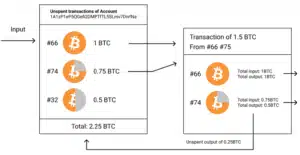Common Construction Delays That Cost Managers Time and Money

When it comes to construction projects, whether residential or commercial, the littlest thing can cause project costs to get way out of hand. The culprit (usually): delays to the project completion date.
There are, of course, several factors that can play a role in a project getting delayed well beyond the projected competition date. But to keep costs within budget, the construction crew must stay on schedule. The real question is how?
How can a construction project manager to stay on schedule and within budget with so many moving parts affecting the completion progress?
Well, that’s the whole thing… the moving parts. Once you can identify the moving parts, you’ll then be able to approach each one with preventive measures in place. Let’s take a closer look at those moving parts and discuss the associating solutions to remedy and possibly prevent them.
Construction Blockers
What is a construction blocker? A construction blocker is a particular procedure or task that must be complete in its entirety before other procedures or parts of the construction project can be started. This is indeed a frustrating aspect of a time-sensitive schedule but things have to go in a certain order for the work to be done right.
For example, if you’re to construct a brick building, you, of course, will need to lay the bricks, but the mason you hired can’t lay those bricks until your other subcontractor has poured the foundation for the building.
This is an issue where extensive planning must take place prior to starting the project and being able to identify potential blockers will play a significant role. This will allow you to prevent this issue from furthering your completion date.
Construction Delays
Unlike construction blockers, construction delays tend to be things more so out of your control. An example of this would be if you had planned to install a new roof on a home in a two-day time frame, but it rains… Now you have to push the project back two days due to inclement weather. Of course, you have no control over the weather, but when it comes to projects that can potentially be impacted by inclement weather, you must always have a plan B and allow for delays like that when you give a client an estimated completion date. Again, planning is key here as well.
Faulty Management Skills
Yes, that’s right. Sometimes projects can be delayed due to the construction manager’s own inability to multitask and delegate responsibilities. As the overseer of all construction projects, it’s your responsibility to ensure they go according to plan (as best as you can) and that’s going to require some organization on your part.
It will be your responsibility to make sure your workers stay up-to-date on licensing requirements for your state. If they’re not, you can provide them with the resources to renew online. And while you may not be able to make every worker show up to work on time, you can tighten up on the consequences for showing up late. Incorporate a clock-in system to track each worker’s punctuality.
You also want to make sure every worker knows their responsibilities and what role they play in the construction process, meaning, there should be no worker just standing around doing nothing. If they are, it’s likely due to them not knowing what to do or how to do it. It’s your job to make sure they have a clear understanding of their role and responsibilities.
These and other management inabilities will cost you time and money, delaying projects even further. If your current management methods could use some improvement, there are several online resources to use for the betterment of your business, and you could also turn to other construction managers to get advice from them.
Your ability to identify these construction delays is what will help you to become a better project or construction manager, thus, improving your construction business.
Take the time out to do a full evaluation of each project you take on and see if you can identify any of these delays. If you notice any from this list, it will then be your due diligence to take the necessary steps to put the preventive measures in place to stop those issues from becoming an obstacle.
As they say in the world of business, “time is money,” and the more time you take to complete a project, the more money you’ll end up spending, taking away from your overall profits.








